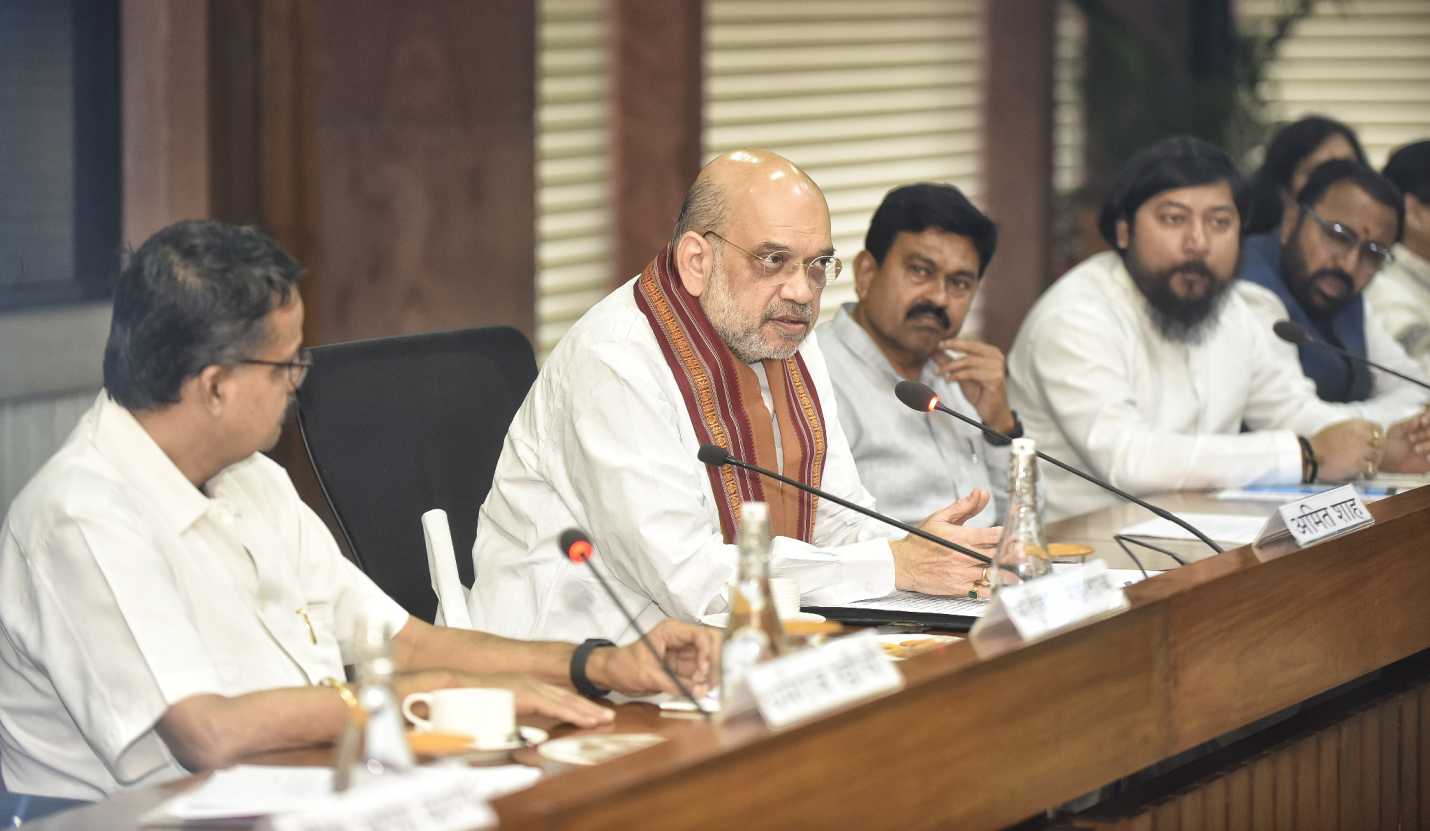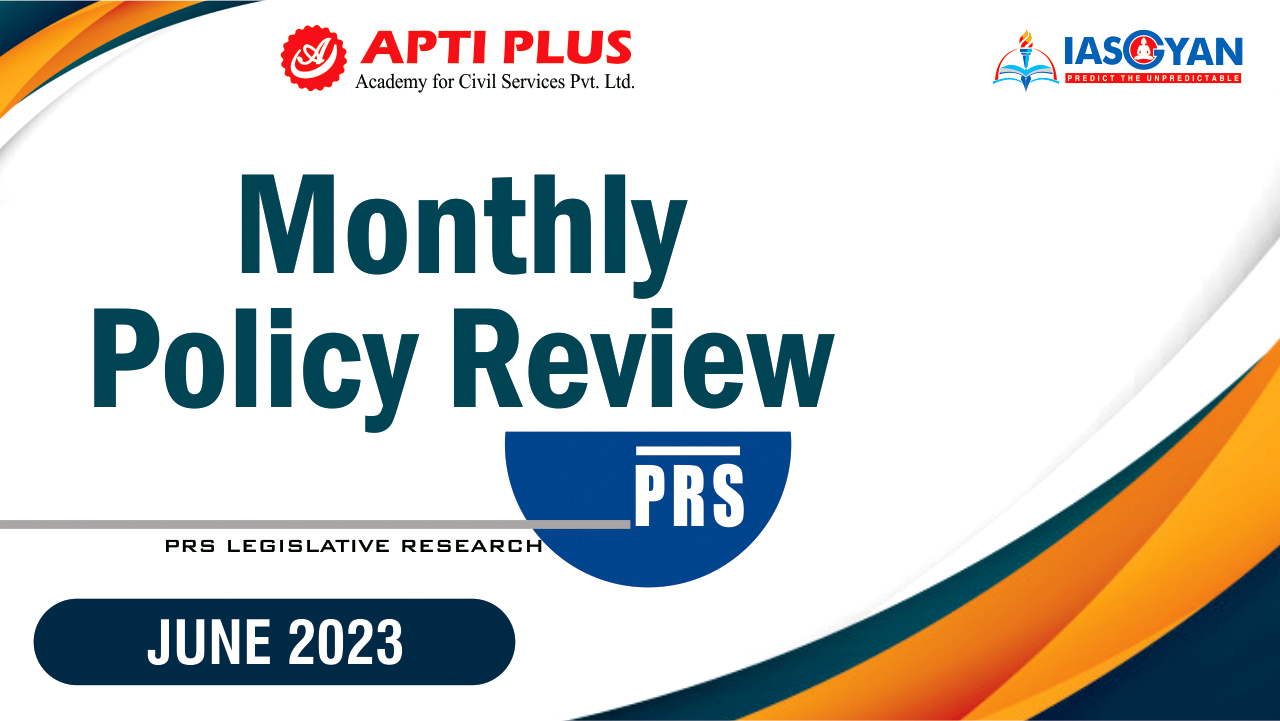Description

Copyright infringement not intended
Context: Union Home Minister chaired the 38th meeting of the Committee of Parliament on Official Language in New Delhi.
Details
Committee of Parliament on Official Language
- The Committee of Parliament on Official Language is a statutory body that was established in 1976 under the provisions of Article 344(4) of the Constitution of India. It was established under Section 4 of The Official Languages Act 1963.
- This section states that the committee shall be constituted when a resolution to that effect is moved in either House of Parliament with the previous sanction of the President and is passed by both Houses.
- The main function of the committee is to review the progress made in the use of Hindi as the official language of the Union and to suggest measures for its propagation and development. The committee also examines the grievances and suggestions received from various individuals and organizations regarding the official language policy.
- The committee consists of 30 members, 20 from Lok Sabha and 10 from Rajya Sabha, who are nominated by the Speaker and the Chairman respectively. The term of the committee is co-terminus with that of the House.
- The committee elects its chairman from among its members. The committee has a secretariat headed by a director who assists it in its work.
- The committee has been instrumental in promoting the use of Hindi as the official language of the Union and ensuring its compatibility with other languages of India.
- The committees submit their reports to the President. The President is required to lay the report before each House of Parliament and also send it to all State Governments
.jpg)
Functions of the committee
- Monitoring the implementation of the constitutional provisions related to the use of Hindi as the official language.
- Recommending measures to increase the use of Hindi in government functioning.
- Reviewing the progress made in the use of Hindi in various government departments and organizations.
- Addressing the concerns of non-Hindi-speaking states and linguistic minorities.
Notable achievements of the committee
- It recommended the adoption of Devanagari numerals along with international numerals in official documents.
- It suggested the use of common Hindi terminology for scientific and technical terms.
- It advocated the use of Hindi in judicial proceedings, diplomatic correspondence, railway tickets, passports, currency notes, etc.
- It proposed the establishment of a National Translation Mission to facilitate the translation of official documents and literature from English to Hindi and vice versa.
- It urged the Central and State governments to provide incentives and facilities for learning Hindi to their employees and students.
Challenges and limitations in fulfilling its mandate
- It has no statutory powers to enforce its recommendations or to penalize the violators of the official language policy.
- It has to balance the interests and aspirations of different linguistic groups and regions while promoting Hindi as the official language.
- It has to deal with the resistance and apathy of some sections of society who perceive Hindi as a threat to their linguistic identity and culture.
- It has to cope with the rapid changes in technology and communication that pose new challenges for the development and dissemination of Hindi.
Way forward for the committee
- Continue the efforts to make Hindi more acceptable and accessible to all sections of society and to foster a sense of linguistic harmony and integration in the country.
- Strengthen its coordination and collaboration with other bodies and institutions related to language development and promotion.
- Enhance its outreach and awareness programs to educate and motivate people about the benefits and importance of learning Hindi as the official language.
- Encourage and support research and innovation in the Hindi language, literature, and culture.
- Monitor and evaluate the implementation and impact of its recommendations and suggestions.

Conclusion
- The Committee of Parliament on Official Language is a vital organ for ensuring the linguistic diversity and unity of India. It plays a crucial role in preserving and promoting Hindi as the official language of the Union while respecting and accommodating other languages of India.
Must-Read Articles:
Official Language: https://www.iasgyan.in/daily-current-affairs/official-language-15#:~:text=According%20to%20the%20Indian%20Constitution,official%20language%20of%20the%20Union.
LANGUAGE PANEL RECOMMENDATIONS: https://www.iasgyan.in/daily-current-affairs/language-panel-recommendations
|
PRACTICE QUESTION
Q. In the context of language policy in India, how important is it to strike a balance between promoting Hindi for national unity and respecting the diversity of regional languages? What are the challenges associated with achieving this balance, and what strategies could be employed to ensure that language policies foster unity while safeguarding the rich linguistic heritage of the country?
|
https://pib.gov.in/PressReleaseIframePage.aspx?PRID=1945827#:~:text=by%20PIB%20Delhi-,Union%20Home%20Minister%20and%20Minister%20of%20Cooperation%2C%20Shri%20Amit%20Shah,be%20presented%20to%20the%20President.






.jpg)




